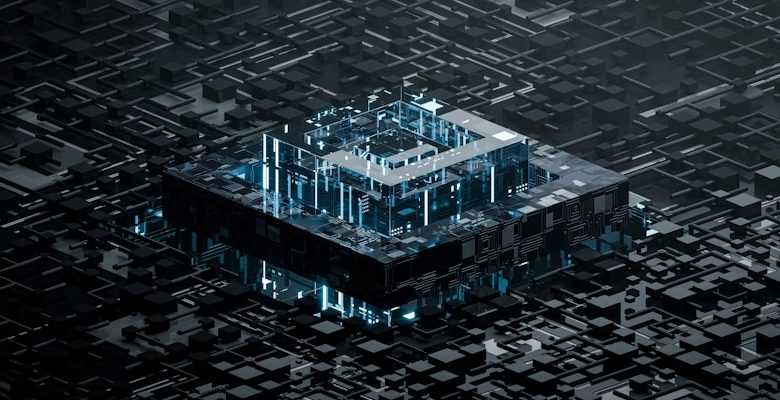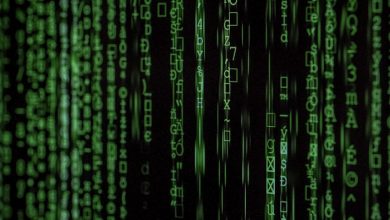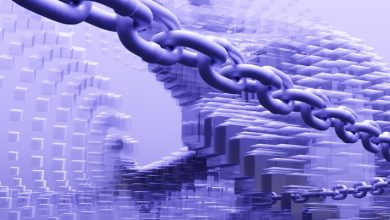The Intersection of Blockchain and Artificial Intelligence

- Understanding the Basics of Blockchain Technology
- Exploring the Potential of Artificial Intelligence in Blockchain
- Challenges and Opportunities in Integrating Blockchain and AI
- Real-world Applications of Blockchain and AI Intersection
- The Future of Decentralized AI with Blockchain
- Ethical Considerations in the Convergence of Blockchain and AI
Understanding the Basics of Blockchain Technology
Blockchain technology is a foundational technology that is revolutionizing various industries by providing a secure and decentralized way to record transactions and data. A blockchain is essentially a digital ledger that stores transaction data in a series of blocks that are linked together in a chain. Each block contains a cryptographic hash of the previous block, along with transaction data, creating a secure and tamper-proof record of all transactions.
Blockchain technology is based on the principles of transparency, immutability, and decentralization. Transactions recorded on a blockchain are transparent and can be viewed by anyone with access to the network. Once a transaction is recorded on the blockchain, it cannot be altered or deleted, ensuring the integrity of the data. Additionally, blockchain technology operates on a decentralized network of computers, which means that there is no single point of control or failure.
One of the key features of blockchain technology is its ability to enable trustless transactions between parties. Trustless transactions mean that parties can engage in transactions without having to trust each other or rely on a third party to facilitate the transaction. This is made possible through the use of smart contracts, which are self-executing contracts with the terms of the agreement directly written into the code.
Overall, blockchain technology has the potential to transform industries by increasing transparency, security, and efficiency in various processes. Its decentralized nature and cryptographic security make it an ideal solution for industries such as finance, supply chain management, healthcare, and more. As blockchain technology continues to evolve and adapt to new use cases, its intersection with artificial intelligence is creating new opportunities for innovation and collaboration.
Exploring the Potential of Artificial Intelligence in Blockchain
Artificial intelligence (AI) is revolutionizing various industries, and its potential in the blockchain space is no exception. By combining AI and blockchain technology, companies can create innovative solutions that leverage the strengths of both technologies. AI can enhance the security and efficiency of blockchain networks, while blockchain can provide a transparent and immutable ledger for AI algorithms.
One of the key benefits of using AI in blockchain is its ability to analyze large amounts of data quickly and accurately. This can help improve the scalability and performance of blockchain networks, making them more efficient and cost-effective. AI can also help detect and prevent fraudulent activities on the blockchain, enhancing its security and trustworthiness.
Furthermore, AI can be used to automate various processes on the blockchain, such as smart contract execution and data verification. This can streamline operations and reduce the need for human intervention, leading to faster and more reliable transactions. By harnessing the power of AI in blockchain, companies can unlock new opportunities for growth and innovation in the digital economy.
Challenges and Opportunities in Integrating Blockchain and AI
When it comes to integrating blockchain and artificial intelligence (AI), there are both challenges and opportunities that organizations need to consider. These two cutting-edge technologies have the potential to revolutionize various industries, but they also come with their own set of complexities.
One of the main challenges in integrating blockchain and AI is the issue of scalability. Blockchain technology, while secure and transparent, can be slow and inefficient when it comes to processing large amounts of data. This can be a significant hurdle when trying to leverage AI algorithms that require vast amounts of data to function effectively.
Another challenge is the interoperability between blockchain and AI systems. Ensuring that these two technologies can work seamlessly together requires a deep understanding of both systems and how they can complement each other. Without this interoperability, organizations may struggle to fully harness the potential of integrating blockchain and AI.
Despite these challenges, there are also numerous opportunities that come with integrating blockchain and AI. One of the main advantages is the enhanced security that blockchain technology provides. By using blockchain to store and secure data, organizations can ensure that their AI algorithms are working with accurate and reliable information.
Additionally, the combination of blockchain and AI can lead to improved transparency and accountability within organizations. Blockchain’s immutable ledger can provide a transparent record of data and transactions, while AI algorithms can help analyze this data to identify patterns and insights that can drive better decision-making.
In conclusion, while there are challenges to overcome in integrating blockchain and AI, the opportunities for organizations to leverage these technologies are vast. By navigating the complexities of scalability and interoperability, businesses can unlock the full potential of blockchain and AI to drive innovation and transformation in their operations.
Real-world Applications of Blockchain and AI Intersection
Real-world applications of the intersection of blockchain and artificial intelligence are expanding rapidly across various industries. This convergence has the potential to revolutionize processes and systems, offering increased efficiency, transparency, and security. Here are some notable examples:
- Supply Chain Management: Blockchain and AI can be combined to optimize supply chain operations by tracking products in real-time, ensuring authenticity, and improving logistics.
- Healthcare: The integration of blockchain and AI can enhance patient data security, enable personalized medicine through data analysis, and streamline administrative processes.
- Finance: In the financial sector, the intersection of blockchain and AI is used for fraud detection, risk assessment, automated trading, and smart contracts.
- Legal Industry: Smart contracts powered by blockchain and AI can automate contract execution, reduce legal costs, and ensure compliance with regulations.
- Energy Sector: Blockchain and AI technologies are employed to optimize energy trading, manage renewable energy sources, and enhance grid efficiency.
These applications demonstrate the immense potential of combining blockchain and AI technologies to drive innovation and transform traditional business practices. As advancements continue to evolve, we can expect to see even more groundbreaking use cases emerge in the near future.
The Future of Decentralized AI with Blockchain
The future of decentralized artificial intelligence (AI) with blockchain technology is promising as these two cutting-edge technologies continue to intersect and revolutionize various industries. By combining the power of AI for data analysis and decision-making with the security and transparency of blockchain for data storage and verification, we are witnessing the birth of a new era of innovation.
Decentralized AI on the blockchain allows for the creation of autonomous AI agents that can interact with each other securely without the need for intermediaries. This opens up a world of possibilities for smart contracts, predictive analytics, and decentralized applications that can revolutionize industries such as finance, healthcare, and supply chain management.
One of the key benefits of decentralized AI on the blockchain is the ability to enhance data privacy and security. By leveraging blockchain’s immutable ledger and encryption capabilities, sensitive data can be stored and shared securely, ensuring that user privacy is protected at all times. This is especially crucial in industries where data integrity and confidentiality are paramount.
Furthermore, decentralized AI on the blockchain enables the creation of more efficient and transparent marketplaces. Smart contracts powered by AI algorithms can automate complex transactions and ensure that all parties involved are held accountable. This not only reduces the risk of fraud and human error but also streamlines processes and lowers costs.
As we look towards the future, the potential for decentralized AI on the blockchain is boundless. From enabling more personalized services and products to optimizing business operations and decision-making, the synergy between AI and blockchain is reshaping the way we interact with technology. Embracing this convergence will undoubtedly lead to a more innovative, secure, and efficient digital ecosystem for years to come.
Ethical Considerations in the Convergence of Blockchain and AI
The convergence of blockchain and artificial intelligence brings about various ethical considerations that must be carefully addressed to ensure the responsible development and deployment of these technologies. One of the primary concerns is the issue of data privacy and security. As both blockchain and AI rely heavily on data, there is a risk of sensitive information being exposed or manipulated without proper safeguards in place.
Another ethical consideration is the potential for bias in AI algorithms. When AI systems are trained on data that is inherently biased, it can lead to discriminatory outcomes. This is particularly concerning when combined with blockchain technology, as the immutable nature of blockchain can make it difficult to correct or mitigate these biases once they are ingrained in the system.
Furthermore, transparency and accountability are crucial in the intersection of blockchain and AI. As these technologies become more intertwined, it is essential for organizations to be transparent about how they are using these tools and be held accountable for any unethical practices. Without proper oversight, there is a risk of misuse or abuse of these powerful technologies.
In conclusion, the convergence of blockchain and artificial intelligence holds great promise for innovation and advancement. However, it is imperative that we approach this intersection with a strong ethical framework to ensure that these technologies are developed and utilized in a responsible and ethical manner that benefits society as a whole.



